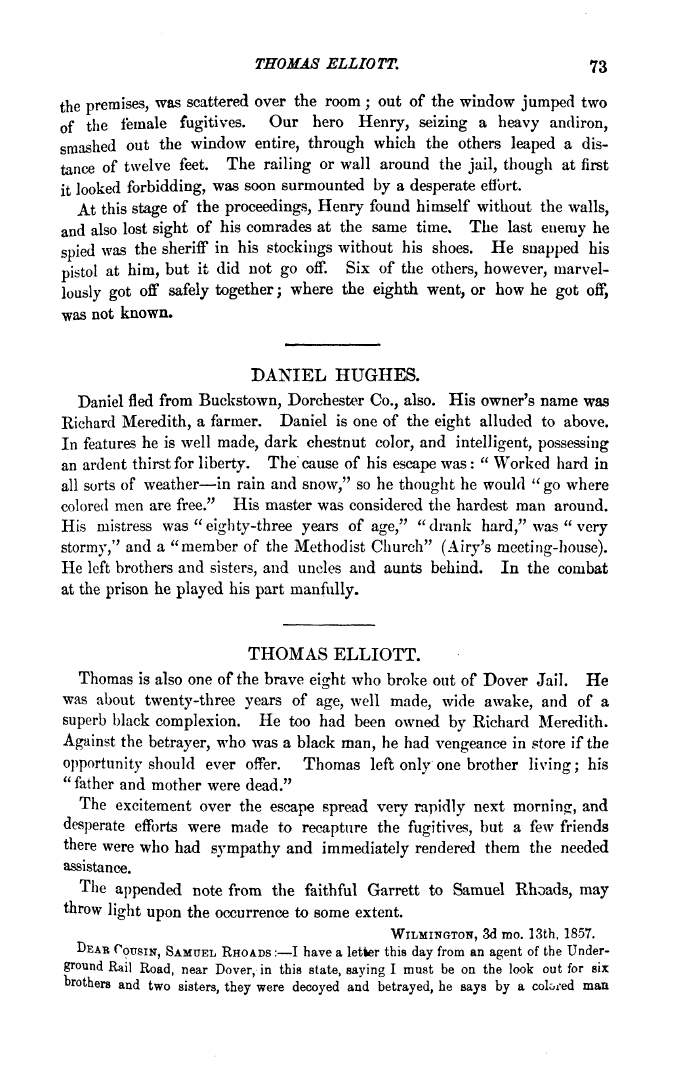 |
||||
 |
||||
| THOMAS ELLIOTT. 73 the premises, was scattered over the room ; out of the window jumped two of the female fugitives. Our hero Henry, seizing a heavy andiron, smashed out the window entire, through which the others leaped a distance of twelve feet. The railing or wall around the jail, though at first it looked forbidding, was soon surmounted by a desperate effort. At this stage of the proceedings, Henry found himself without the walls, and also lost sight of his comrades at the same time. The last enemy he spied was the sheriff in his stockings without his shoes. He snapped his pistol at him, but it did not go off. Six of the others, however, marvellously got off safely together; where the eighth went, or how lie got off, was not known. DANIEL HUGHES. Daniel fled from Buckstown, Dorchester Co., also. His owner's name was Richard Meredith, a farmer. Daniel is one of the eight alluded to above. In features he is well made, dark chestnut color, and intelligent, possessing an ardent thirst for liberty. The cause of his escape was: " Worked hard in all sorts of weather—in rain and snow," so he thought he would " go where colored men are free." His master was considered the hardest man around. His mistress was "eighty-three years of age," "drank hard," was " very stormy," and a "member of the Methodist Church" (Airy's meeting-house). He left brothers and sisters, and uncles and aunts behind. In the combat at the prison he played his part manfully. THOMAS ELLIOTT. Thomas is also one of the brave eight who broke out of Dover Jail. He was about twenty-three years of age, well made, wide awake, and of a superb black complexion. He too had been owned by Richard Meredith. Against the betrayer, who was a black man, he had vengeance in store if the opportunity should ever offer. Thomas left only one brother living; his " father and mother were dead." The excitement over the escape spread very rapidly next morning, and desperate efforts were made to recapture the fugitives, but a few friends there were who had sympathy and immediately rendered them the needed assistance. The appended note from the faithful Garrett to Samuel Rhoads, may throw light upon the occurrence to some extent. WILMINGTON, 3d mo. 13th, 1857. DEAB COUSIN, SAMUEL RHOADS :—I have a letter this day from an agent of the Underground Rail Road, near Dover, in this state, saying I must be on the look out for six brothers and two sisters, they were decoyed and betrayed, he says by a colored man |